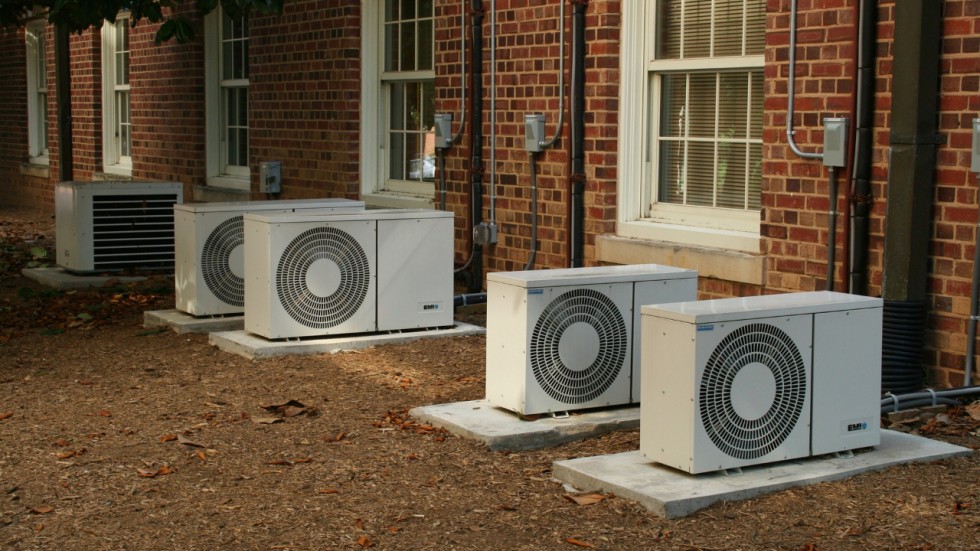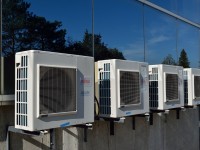Air conditioners save people on hot summer days. But in case a central system is not an option for your home, a room air conditioner can be a perfect solution for cooling your dwelling. Moreover, cooling a home with an a/c unit instead of several fans is a much more energy-efficient option. Reports say that about 13% of the total yearly utility bill is spent on air conditioning units alone.
First, you will read about the design features and working characteristics of air conditioners. Then the tips about choosing an a/c unit will be presented. So, read the article without missing the first part in order to see the full picture.
What factors to consider when choosing an air conditioner?
-
Look for Energy Star
Energy Star rating is essential when choosing an a/c unit. High rating guarantees good insulation and clear maintenance instructions that would minimize leaks in the future.
-
Note the noise
Read the manual carefully to ensure that you choose a unit with the lowest noise level. This point is especially important if you’re choosing an a/c for home use.
-
Window location
Windows mounted a/c units are usually chosen for one direction blowing. Air conditioning installers say that this can be a problem even for cooling a room. Such a problem occurs if the window is not centered on the wall. In order to uniformly make a room cool, you will need to manually direct air to its center.
-
Installation
Proper installation of an air conditioning unit is the most essential step to make it work correctly. There are different units used for double-hung and casement windows. The installation also influences on the draining of the unit. Experts advise keeping the a/c away from the heat-generating devices such as lamps and TVs.
-
Filter location
You need to ensure that access to the a/c filter is free and unobstructed. Filter change and cleaning are one of the a/c maintenance elements. Make sure that you can easily get to the filters!
-
Warranty check
Different air conditioners have different warranty agreements. Before you purchase a unit, go to the manufacturer’s website and verify the warranty period. The longer, the better. Having an official brand representative and service in your city can simplify warranty claims.
How to evaluate available options?
Before we get to the prices and features of air conditioning units, you need to calculate the size of a unit you need. It will depend on the existing space and the location of the unit. Most window-based a/c’s have a cooling capacity of 5,000-12,500 British thermal units (Btu).
To understand the size of your room, multiply the room length by its width. However, don’t buy units based on Btu alone. Energy Star usually advises making allowances for the ceiling height and the size of windows/doorways. On top of that, here are additional factors to keep in mind:
- Reduce capacity by 10% if the room is shaded.
- Increase capacity by 10% if the room is extra sunny.
- Add 600 Btu for each additional person, if the room is used by more than 2 people on a regular basis.
- Increase capacity by 4,000 Btu, if you’re planning an a/c in the kitchen.
How to choose an a/c model?
First and foremost, don’t get hooked by the low price. Some a/c units cost as low as $200, but they are useful only for very narrow spaces. If your room is bigger than a standard bathroom, then focus on the space square footage to find the matching unit. Below you will find different types and average costs of an air conditioner depending on their features and construction characteristics.
Window air conditioner units
-
Small
(5,000-6,500 Btu capacity range)
Small units work well in spaces 100-300 square feet. They are the smallest and lightest units with the lowest price of $150-$250. -
Medium
(7,000-8,200 Btu)
If your space is about 250-400 square feet, then medium-sized window air conditioners can be your choice. Be ready that these units weight more and so might pose some complications for winter storage removal. Consult air conditioning experts to ensure that you choose the best location for medium units. The prices vary from $200 to $400. -
Large
(9,800-12,500 Btu)
Rooms of 350-650 square feet require large units which cost $350-$600. However, these units are pretty bulky and heavy so may not be appropriate for a private use. If your home has many large rooms, then air conditioning installers advise considering central a/c system for the whole building.
Portable air conditioner units
Portable a/c units were designed for homes where window configurations or local building regulations do not allow window models. The power of portable units ranges in the 9,000-15,500 Btu capacity. However, experts warn that you shouldn’t compare window and portable a/c units by capacity alone.
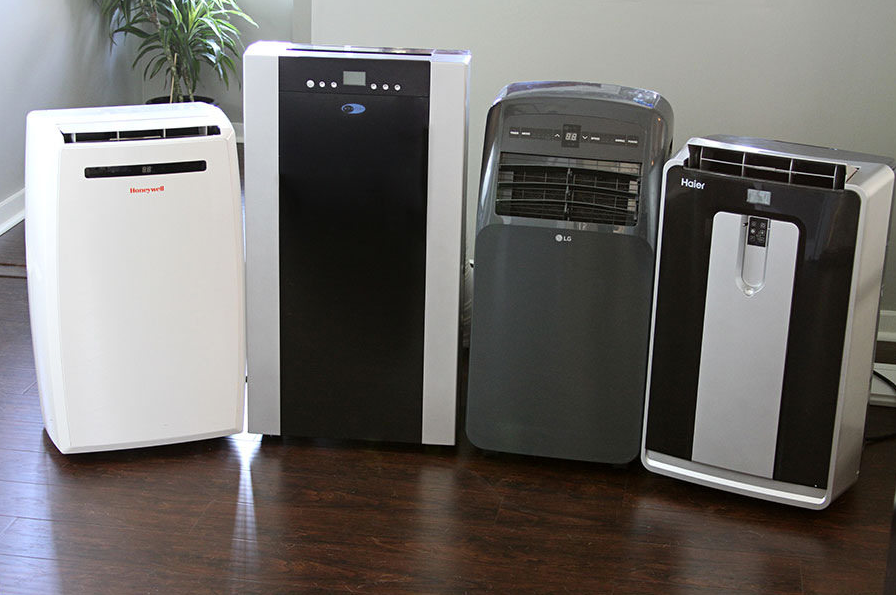
Many tests conducted with both types of air conditioners showed that portable units require significantly more electricity. However, they have a much lower efficiency. While functionality features of portable units are lower than those of window units, their cost is generally higher (the average cost of portable a/c units is $300-$700). Moreover, portable models are also noisier than window-mounted a/c’s. Many business owners looking for a/c’s for offices also neglect the fact that each unit weighs about 50-80 pounds; this fact makes them too cumbersome and heavy for rolling across carpets and thresholds.
Split ductless air conditioner units
These a/c models offer the advantage of not damaging walls for ductwork installation and eliminating the problems with removal of a/c units for the winter period. Split ductless air conditioners are significantly quieter than window units. They are actually barely audible according to the consumer reviews. Due to the number of offered advantages, split-ductless models cost more than the previously described units (the prices begin from $1,000), yet their cost is still lower than of a central a/c system.
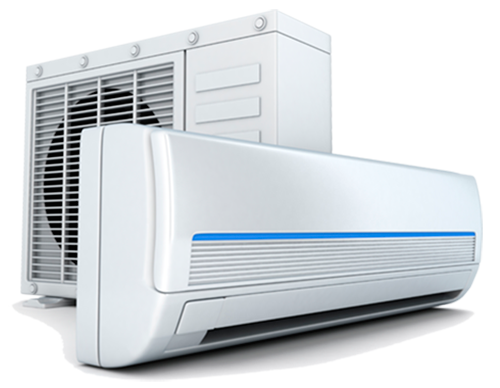
Smart features of modern a/c units
Modern air conditioners come with a wide variety of smart features that simplify their exploitation and improve their efficiency. Here are the most common of them for your consideration:
-
Directional airflow vents
All a/c units have adjustable airflow vents; some are aligned horizontally, others vertically. Make sure that you take into consideration your room layout to decide which position of airflow vents will work better for your space.
-
Controls
Today most controls are made with LED displays that have information about the temperature, several buttons for mode regulations, and some additional information (such as air humidity or condition of filters). Controls simplify navigation between modes and help control temperature much easier.
-
Remote control
A remote control is pretty much a standard feature in modern a/c units. It helps in controlling and navigating the conditioner without the need of getting to it. It’s especially valuable for commercial buildings with a high ceiling.
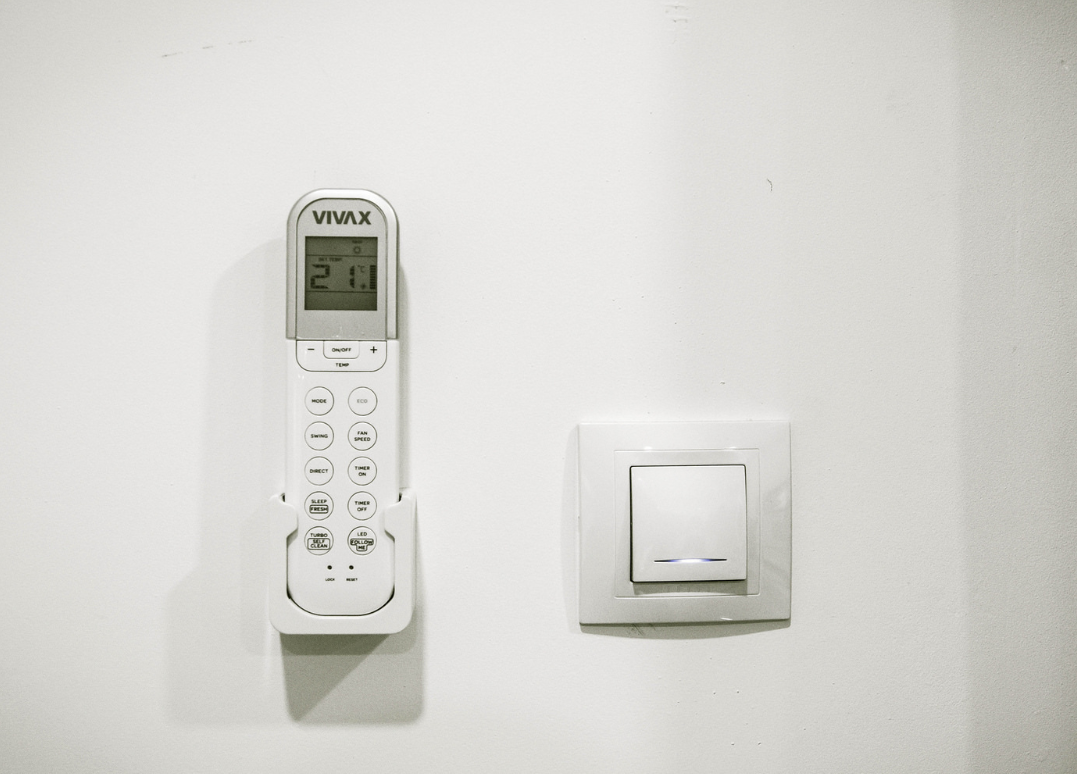
-
Efficiency aids
A timer is a great helper for homeowners who want to control turning on and off function of the unit. Be ready that his feature might be absent in your unit. Units with an efficiency aid allow you set the turn off timer for a couple of hours in the night to avoid catching a cold from the a/c.
-
Dehumidifying mode
This feature allows using a/c on cool days in spring and autumn when additional heat is needed without no extra humid.
-
Fresh-air intake and exhaust setting
Fresh-air intake allows your unit taking fresh air from the outside and getting it into your home without a temperature change.
Now you know about the basic types of air conditioner units and the most common features available on the market. Carefully read all specifications before purchasing an a/c unit to ensure that you match its capacity and features to your space requirements.
Photo credits by https://www.yourbestdigs.com/
